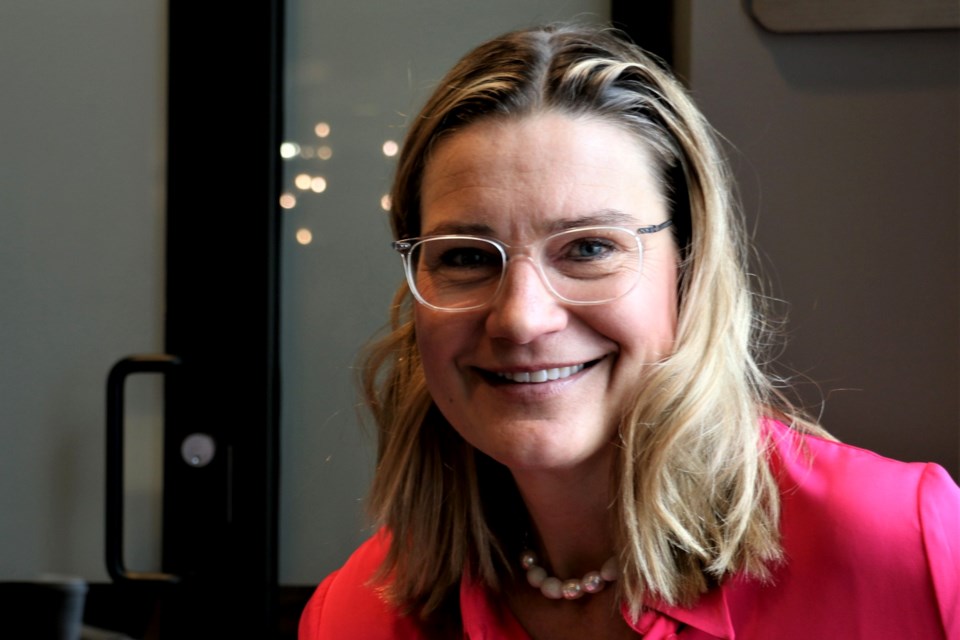The COVID-19 pandemic took a toll on the health of thousands of Ontario residents, both physically and mentally. But it also took a toll on those people whose job is to look after the rest of us.
Dr. Rose Zacharias, the president of the Ontario Medical Association, told an online news conference that the pandemic caused significant issues for our society, but it was also hard on health care professionals.
"The pandemic disrupted the global economy, widened all sorts of inequalities, interrupted our children's education, and forever changed how we work, play, live and interact with one another," said Zacharias.
"We know the pandemic worsened burnout for health care workers and others on the front lines. And more people are suffering from mental health issues such as substance use and depression. Did the pandemic also make us more lonely and less kind?" she said.
Zacharias said wait times for community health services have tripled and patients of every description are reporting increased stress tied to economic and affordability issues.
"Physicians, meanwhile, are working to keep up with the demand while facing record levels of burnout," said Zacharias. "When the OMA did its annual survey of members in 2022, 93 per cent of physicians agree that doctors are feeling burnt out, and 66 per cent of respondents strongly agreed with that statement."
As part of the OMA presentation, Zacharias also called on a panel of experts to discuss the wider impact of the pandemic.
Sociologist Dr. Kaitlynn Mendes is an associate professor at the University of Western Ontario. She spoke about a recent study carried out in the U.K. among 800 youths aged 13 to 18, along with parents and teachers.
She said surveys were done just as young people were returning to school after lockdown measures were lifted in 2021.
"So we found that lockdown created a significant toll for all three of these groups, but particularly young people. So they told us about things like increased anxiety, the depression and even various forms of self harm," said Mendes.
She said some of the harms were directly linked to digital technology and how "screen time" has impacted young people.
"And we had 96 per cent of our survey participants report that their screen time increased during this period. And this has had many negative impacts on young people. So as Dr. Zacharias mentioned, young people told us about things like increase in their experiences of sexual harassment, misogyny, racism, homophobia, and even various forms of fraud, like catfishing. And other practices like body shaming."
Dr. Lisa Lefebvre, the Associate Medical Director of the Ontario Medical Association's physician health program, said more people were experiencing stress for a whole new set of social influences beyond such things as alcohol and substance use.
"But now I think just the accumulation of a backlog of care, as well as the new stressors related to food insecurity, rising cost of housing. I've really noticed a strain on a lot of my patients who are struggling with the basic necessities of life at this point. And as they try to access services in the community, we have wait times that were previously lengthy that have tripled and sometimes quadrupled at this point in time," said Lefebvre.
Lefebvre said it was also found that in many rural or remote parts of Ontario, the only place people in crisis can get access to care is in hospital emergency departments, which only puts additional strain on emergency care.
Also speaking at the news conference was Dr. Jon Novick, a Toronto-area psychiatrist who is also Medical Director, Physician Health Program, for the OMA. He said the pandemic has caused significant distress for some family doctors who were moved to tears in some cases.
"And if I can share one typical scenario that we might hear at the physician health program; we've had physicians calling up literally in tears because they're so burnt out, they need a break, but they don't know what to do because they're too concerned about their patients not receiving care if they were to take time off," said Novick.
Commenting on possible solutions, Zacharias said one avenue that is being pursued is the idea of allowing more international doctors to practise medicine in Ontario. She said the barriers need to be lifted.
"So yes, our health Human Resource crisis is real. We talk about immediate solutions we know specifically around physician shortage. We have many internationally trained physicians in Ontario that could be expedited in their licensing," said Zacharias.
"And so we have been very proactive here working with our college regulator, speaking with the government and talking about bringing those physicians into the system, reducing the barriers that have been just historically there," she added.
